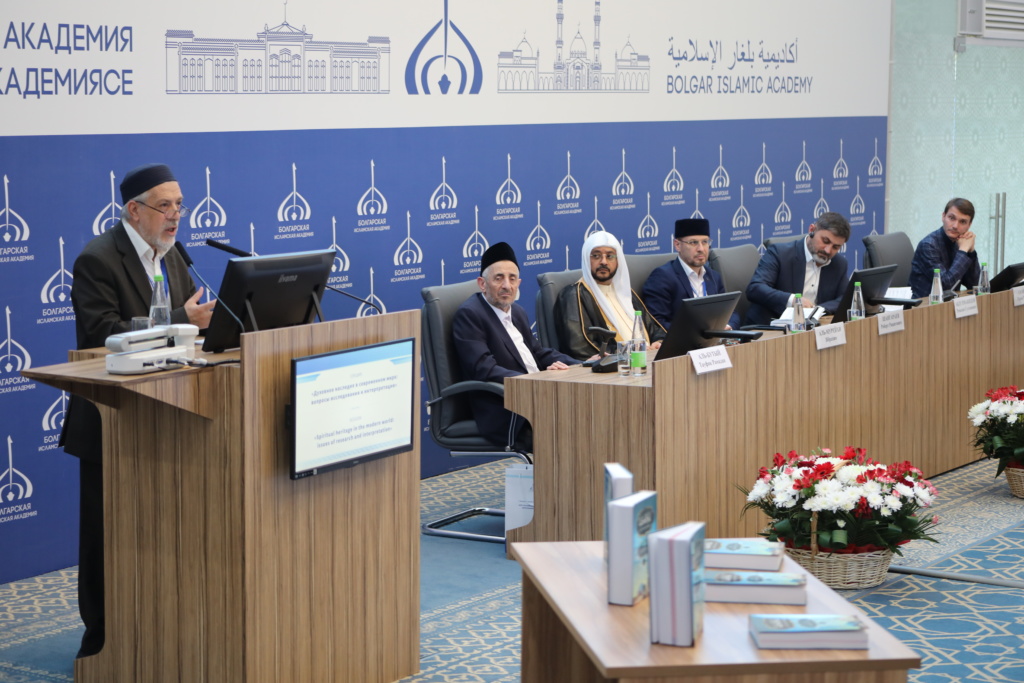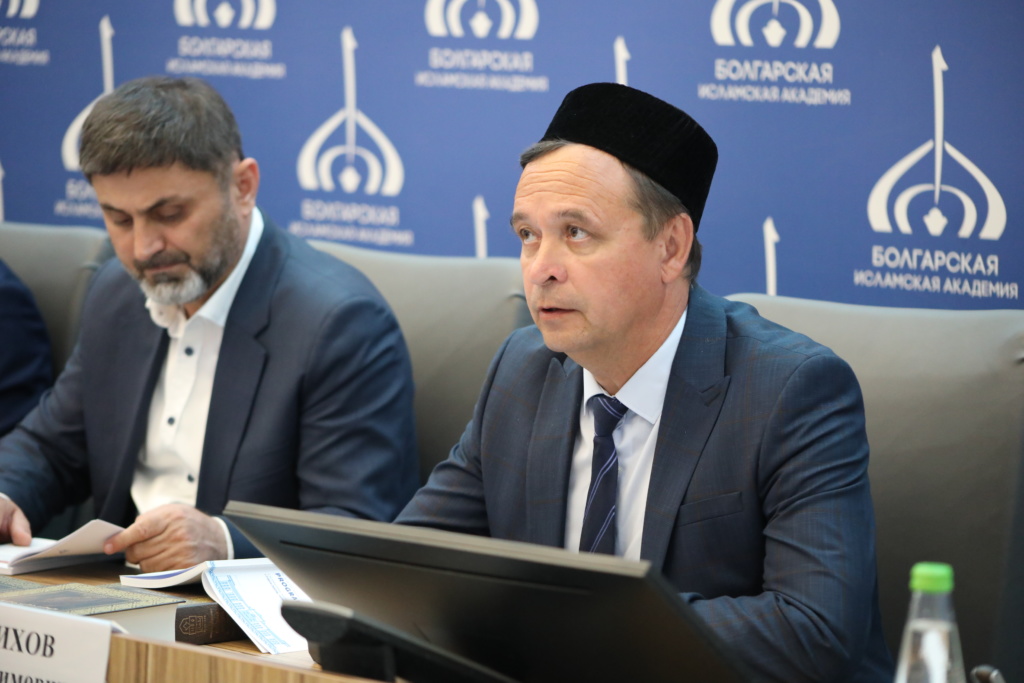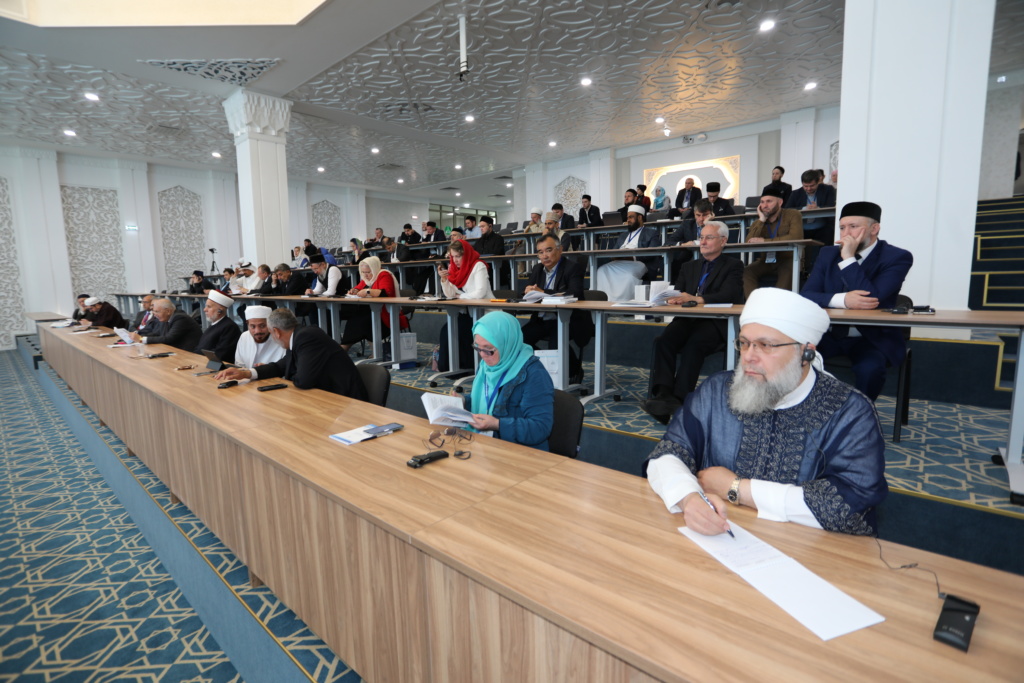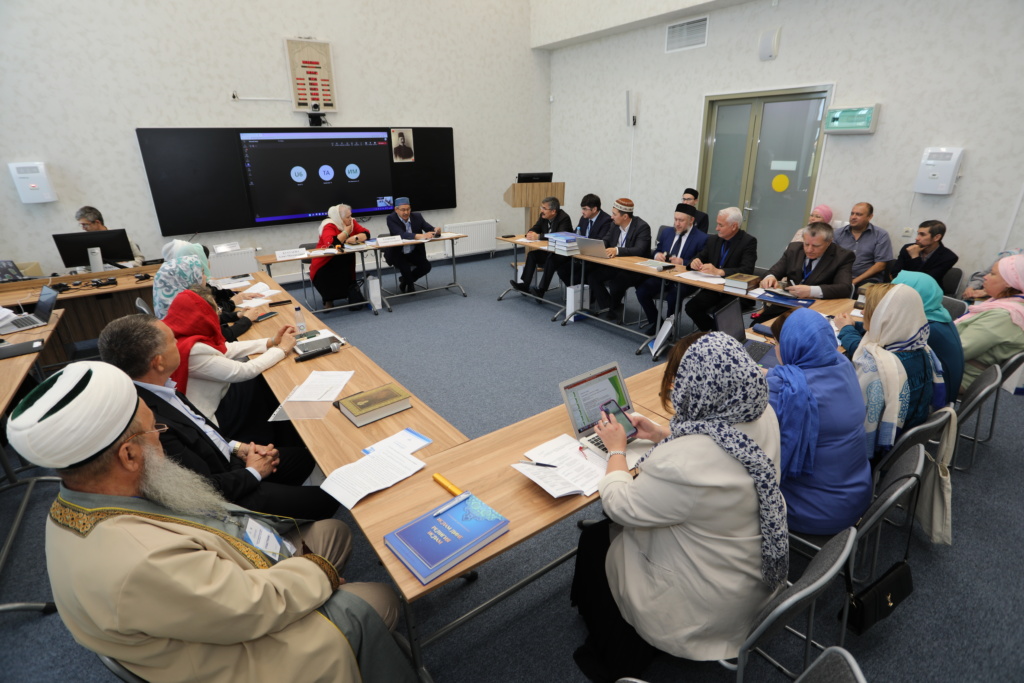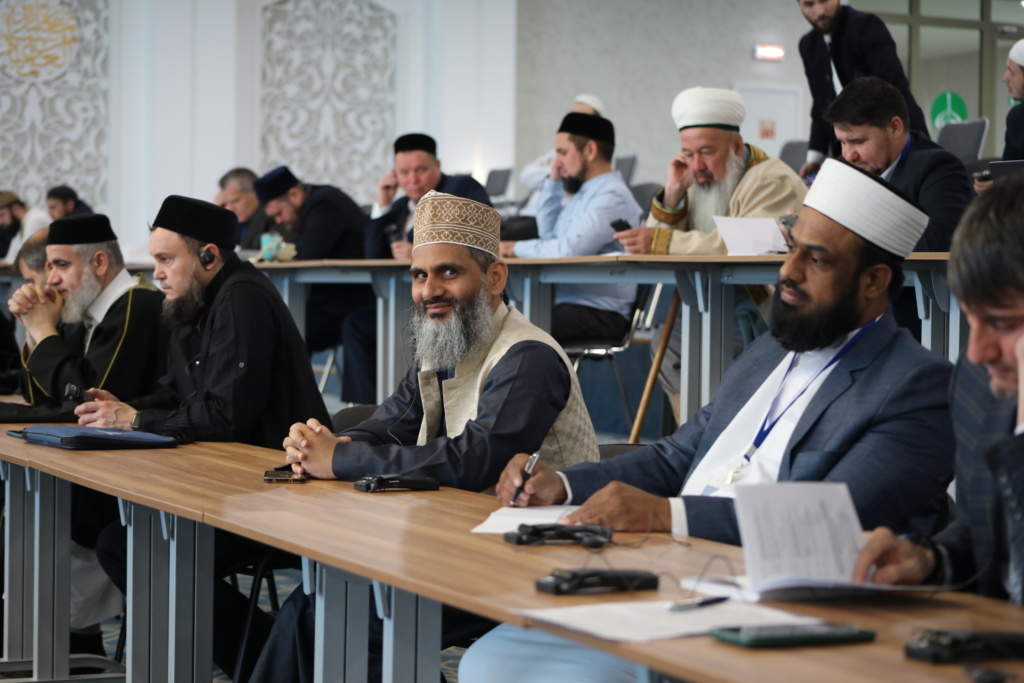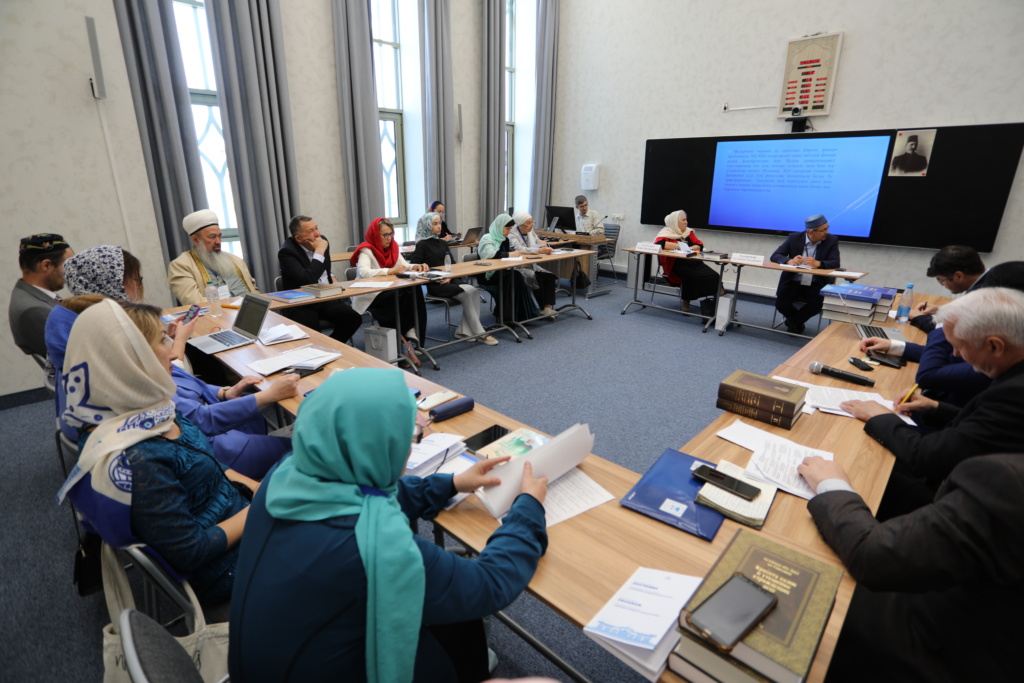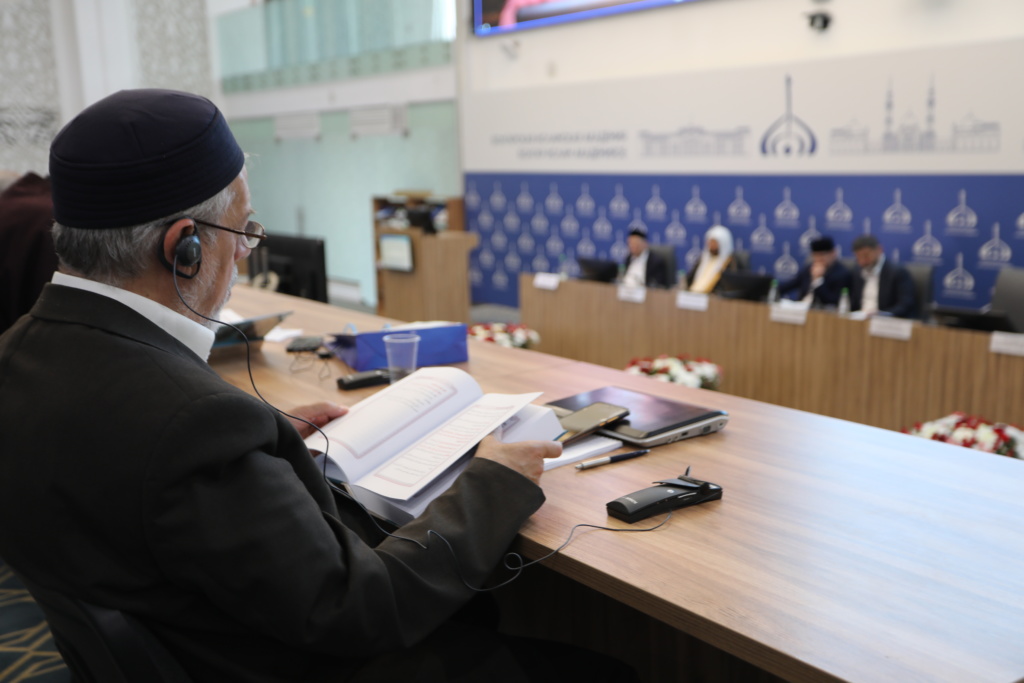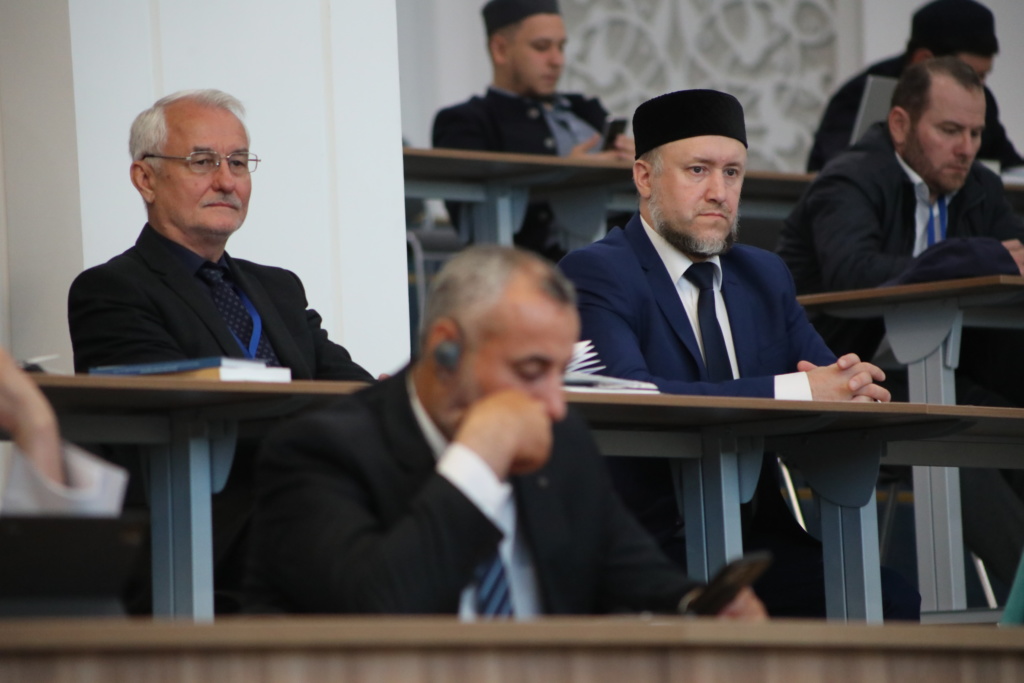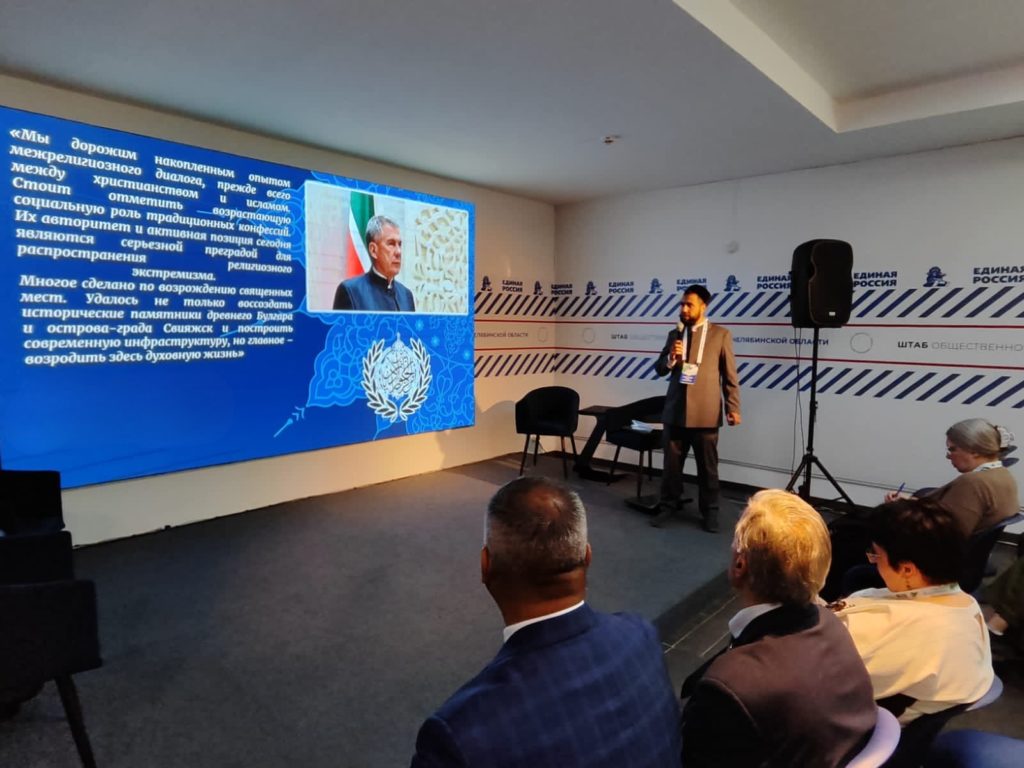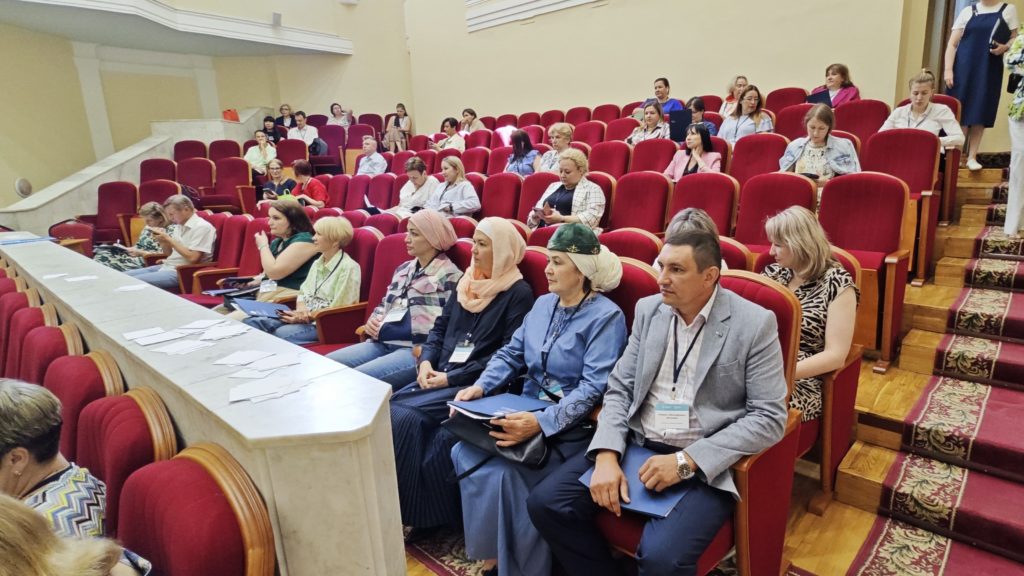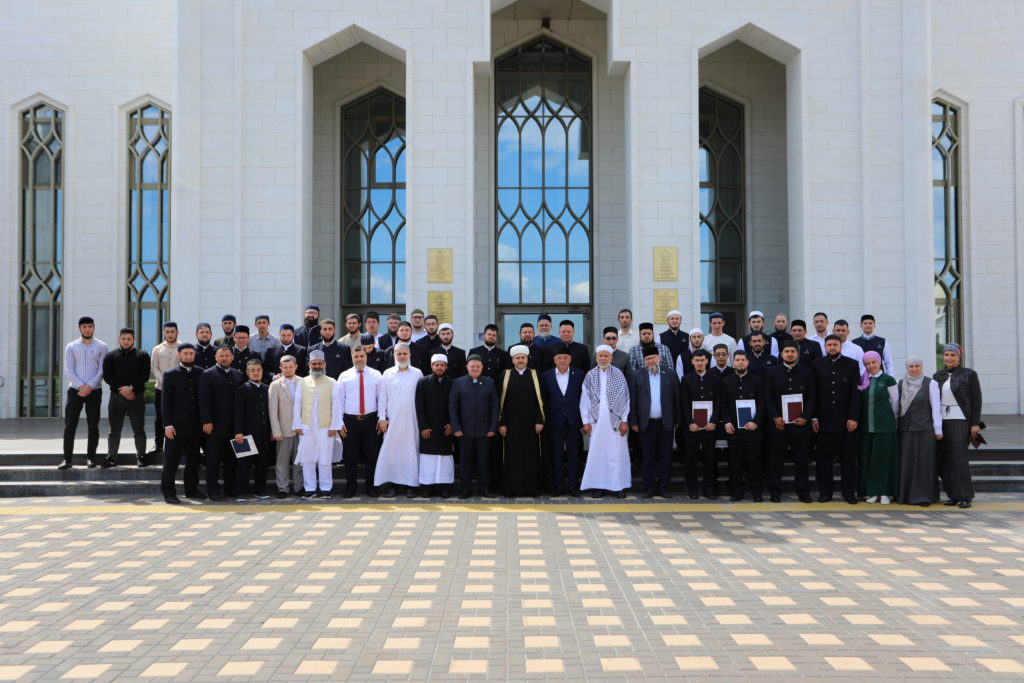On 22 May, the International Scientific and Practical Conference”VII Bolgar readings “Spiritual heritage of Muslims as a basis for strengthening traditional values”, held within the framework of the V International Bolgar Forum “Theological Heritage of Muslims in Russia”, started its work. The event is attended by well-known foreign theologians, rectors of Muslim universities, academic scholars, doctoral and master’s students of the Academy. Robert Shangaraev, Associate Professor of the Theology Department of the Academy, Dean of the Theology Faculty of the Russian Islamic Institute, and Ramazan Abdulmazhidov, Head of the Institute of History, Archaeology and Ethnography of the Dagestan Federal Research Centre, acted as moderators at the opening of the conference.
The Director of the Sh. Marjani Institute of History of the Academy of Sciences of the Republic of Tatarstan Radik Salikhov made a welcoming speech to the participants of the event. He thanked the Academy for organizing the forum at a high level and spoke about the research activities of the Institute of History, aimed at studying the Muslim heritage of national theologians. In particular, it was noted that it is not the first year that within the framework of the series “Anthology of Tatar theological thought” famous works of theologians, starting from Abdunnasir Qursavi and up to the scholars of the XX century, are published. In addition, in 2023, the main works of Shigabutdin Marjani were published in Russian translation by the staff of the Institute of History.
“The Tatars have developed a rich, complex, but meaningful theological thought. We are talking not just about religious literature, but about genealogies, community histories, epigraphic monuments, which show us the vision and understanding of the great teachings of the Islamic religion by our ancestors,” the speaker noted.
According to R. Salikhov, it is necessary to involve not only Islamic scholars but also classical historians, ethnographers and other specialists in the study and popularization of theological works, who can conduct a comprehensive analysis of the unique heritage that has no analogues in the world. In this regard, such meetings are of special importance, as they allow to establish cooperation, find new approaches and methods in the study and popularization of theological works, and bring them to the general public.
In his turn, Rector of the Russian Islamic Institute, Chairman of the Council for Islamic Education Rafik Mukhametshin emphasized that in the context of studying the theological heritage of Muslims in Russia it is important to determine what are traditional values, how to identify and evaluate them.
“How to set the focus, to distinguish traditional values in our vast theological heritage? I am sure that at the conference, these problems will be raised and answers will be found. There are many more questions that require careful discussion, including in the methodology of understanding our theological heritage,” R. Mukhametshin explained.
Tawfiq Ramadan al-Bouti, Professor of the Faculty of Shariah Sciences of Damascus University, Doctor of Shariah Sciences, noted with satisfaction that here, on the land of Tatarstan, the events of 922, when the people of Volga Bulgaria officially accepted Islam, are treated with special value.
“The Republic of Tatarstan was the first Russian region I visited where I acquainted with religious education. I would like to note the important work being done here to preserve the Arabic language, calligraphy, ancient books and manuscripts in Arabic, Persian, Old Tatar and other languages. This precious treasure has come down to us thanks to people who want to preserve their identity and heritage. We must shake off the dust of years and mould from these works and give them a second life,” Al-Bouti urged.
The speaker noted that this process is actively engaged in the Academy, where the laboratory of restoration and digitization of ancient manuscripts is working, engaged in the resurrection of ancient works using modern methods. The leadership of Tatarstan in the person of Rustam Minnikhanov, the Rais (Head) of the Republic, provides great support to the Academy.
The Chairman of the Supreme Sharia Court, Ibrahim Al Muraikhi, also recalled his first visit to Russia in 2014. At that time, he was unfamiliar with the spiritual heritage of local Muslims, knowing only about Shigabutdin Marjani. However, after arriving in the theologian’s homeland, he was able to see his works with his own eyes. Upon his return to Bahrain, Al Muraikhi took up the study of Marjani’s works, which sparked an even greater interest in Russia’s rich theological heritage.
“This is a unique country, a unique region that stands out not only among other Muslim regions, but also among Islamic countries. I can’t help but notice the diversity of ideas among Muslim scholars in this region,” the scholar shared.
As he pointed out, Russia has always been a scientific center, and through its theological heritage, the whole world has the opportunity to be acquainted with the great scientists who came from this land.
The work of the conference will continue on 23 May. It is planned to hold the section “Spiritual heritage in the modern world: issues of research and interpretation” and a round table “Muslim theologians and religious figures of Russia in the historical and cultural heritage of Islam”, dedicated to the memory of a prominent Russian theologian and religious figure Ziya Kamali (1873 – 1942).
